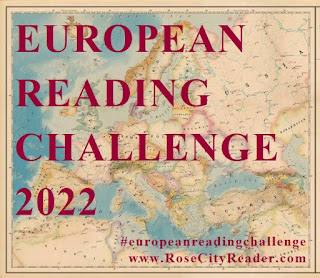from The Donkey's Ears, part 5, § XIX, opening
What's this I do? A diary or a poem?Or letters to you? Will you keep them by youAs a memento of my love, my blueSeafaring days, and when you're old, read themAll over again, in your favourite chairBy the window? By then much might have changedAnd how might Russia be rearrangedForty years on?...
In 1904, the Russian Baltic fleet set sail from Kronstadt, St. Petersburg, to join the Russian Pacific fleet during the Russo-Japanese war. The fleet was under the command of Admiral Rozhestvensky, but the Flag Engineer E. S. Politovsky wrote a series of letters home to his wife during the voyage. (A flag engineer is the person in charge of maintenance and repair across an entire fleet.) The letters made it home and survived and are now considered a major historical source for the expedition. Douglas Dunn, a Scottish poet (b. 1942), used them as the basis for his book length poem.
Dunn says in an afterword he'd started the poem in 1983 for an exhibit on the Dogger Bank incident where the Russian fleet, mistaking a few British fishing boats in the North Sea for the Japanese navy, opened fire. One trawler was sunk, but the Russian navy didn't come out too well either:
Aurora's holed below her waterline--Imaginary, midnight Japanese!Our guns were real, but not our enemies...An empire, at its zenith, in decline!
-Part 1, § VIII, l. 1-4
Those Russians; paranoid much, eh?
Dunn set the poem aside for a while, though, only finishing it in 2000. The poem follows the fleet as it sails around Africa, holes up off Madagascar, still a French colony, then sets sail across the Indian Ocean.
Who can postpone or stop this mercilessNear-circumnavigation, this witless sprintOver the oceans to the Orient,To destiny?Madame, I crave your kiss!
-Part 4, §VII, end
Destiny was the Battle of Tsushima in May of 1905. It was a disaster for the Russians, with very nearly the entire fleet wiped out, and it led swiftly to the end of the Russo-Japanese War. The Tsushima Straits are the body of water between Japan and Korea; Tsushima is an island in those straits with a rock outcrop that resembles donkey's ears, and Tsushima means donkey's ears in Japanese. You can decide if you think the idea of donkeys has any other application to our story...
Admiral Rozhestvensky survived the disaster, but Flag Engineer Politovsky did not. His last appearance:
I'll have to hurry. Our unarmed transportsWill leave us soon for Shanghai, and with mailIf I can finish this before they sailTo booze and safety and the sexual sportsFor which the city's famous. Not for me!My uniform's been pressed, so if I dieI'll be well dressed, gold cufflinks, black bow-tie,Wing collar, dressed to meet the horrid sea.
-Part 9, § V, end
I thought the whole thing very good.
Politovsky seems a good man, his sense of honour, his love for his wife, his engineer's practicality, his ability to see through official balderdash. Dunn said he came to like Politovsky and it shows, and considered contriving a last letter from the battle or a death scene, but then thought better of it. Such is war, anonymizing and deadly.
And why have I picked as my Russia book this year the story of a disastrous end to Russian imperial hubris and military adventurism? Well, you can hope, can't you?


Flag Engineer Politovsky had a good sense of humour :)
ReplyDeleteIt's true! Or at least Douglas Dunn does...
DeleteThis one sounds better than the title of it led me to believe! I never would have thought I say this, but I think I want to read this one now. :D
ReplyDeleteIt makes a pretty good story, and well, I guess Donkey's Ears is appropriate as a title... ;-)
DeleteThe book sounds like and excellent read but I was hoping to see a picture of the island that looks like donkey's ears! 😉
ReplyDeleteI should have! I hunted around to double check on the translation, but never saw a good picture. There is apparently a donkey's ears rock formation in British Columbia though... ;-)
Delete"And how might Russia be rearranged
ReplyDeleteForty years on?"
If only he could have seen what Russia had become by 1944, or rather, the USSR. A very different world. Did his wife live that long do you know?
I don't know. I saw where she was a bit younger than he was so she certainly could have.
DeleteThis is a fascinating look at history through personal letters.
ReplyDeleteThanks!
Delete